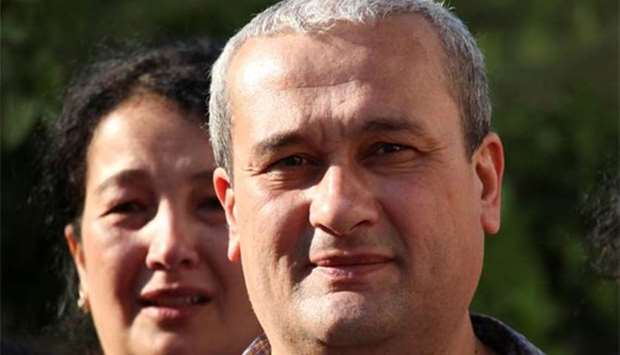* Amnesty says ruling offers "glimmer of hope"
* Relatives cry in court as men freed* Journalist convicted of propaganda, but no jail
An Uzbek journalist was cleared of conspiring against the government and released on Monday, in a court ruling that Amnesty International said offered a "glimmer of hope” after years of crackdowns on reporters and dissidents.
The court in Tashkent also ordered an investigation into "violations” during the inquiry into Bobomurod Abdullayev - his legal team had said he was tortured during his detention.
"I am extremely glad that I have come out of there alive,” Abdullayev told reporters after the hearing which rights campaigners had described as a test of President Shavkat Mirziyoyev's promised liberal reforms.
Abdullayev was detained in the former Soviet republic in September and accused of publishing articles critical of the government on a website run by exiled opposition politicians.
On Monday, he was convicted of a lesser charge of anti-government propaganda but sentenced only to community service.
"I thank Shavkat Mirziyoyev and the court," Abdullayev said.
His co-defendants - two businessmen with government connections who were accused of giving him information - were cleared of all charges and freed. Their relatives cried in joy in court as the men stepped out of a metal cage one by one.
'A terrible price'
Abdullayev’s lawyer had told the court in March that Abdullayev had been beaten, deprived of sleep and put in solitary confinement during the investigation.
On Monday, the court ordered the state security service to look into "violations" during the investigation process - a marked departure from the days of Mirziyoyev's predecessor, Islam Karimov, when courts routinely dismissed torture complaints.
President Mirziyoyev came to power in 2016 promising to liberalise the tightly-controlled state.
He has since freed several prominent political prisoners, ordered thousands of people taken off a state security black list and introduced some economic reforms such as the liberalisation of the foreign exchange market.
Improving Uzbekistan's human rights record could help the mostly Muslim nation bordering Afghanistan secure more foreign investment and revive an economy which has struggled to create enough jobs for a growing population.
Amnesty described the court’s decision as "a glimmer of hope for the country’s beleaguered journalists,” and called for concrete reforms to guarantee freedom of expression.
"Bobomurod Abdullayev’s has already paid a terrible price for his independent journalism, spending seven months in Uzbekistan’s most notorious detention centre where he was allegedly tortured to confess to trumped up charges,” said Denis Krivosheev, Amnesty's Deputy Director for Eastern Europe and Central Asia.
"There must now be a thorough, impartial and independent investigation into these allegations, which are alarmingly commonplace in Uzbekistan," he added.

